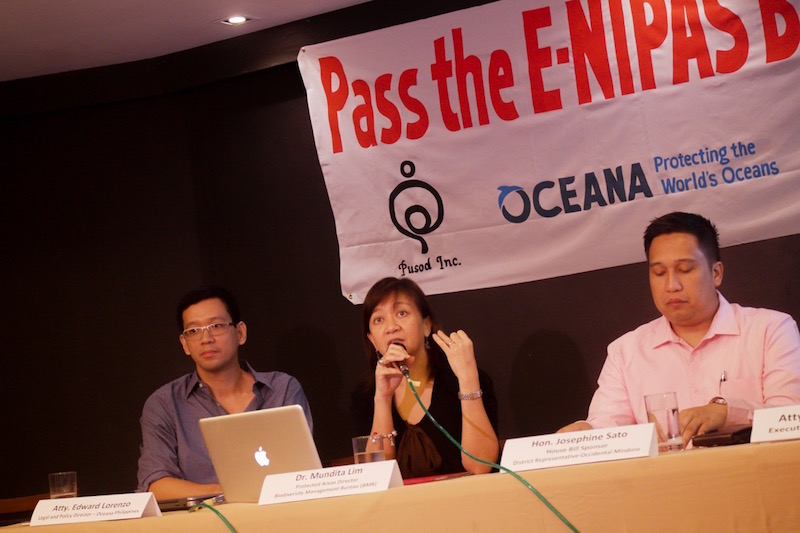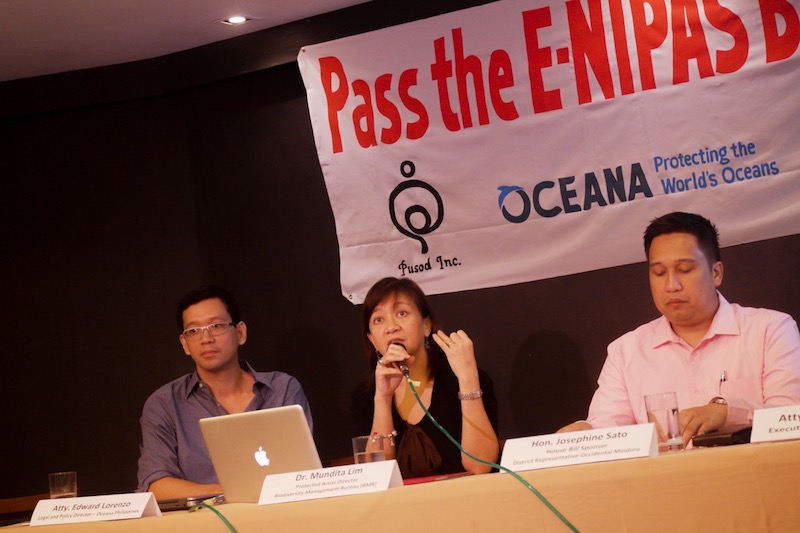By MARIA FEONA IMPERIAL
MANICANI Island is a small fishing community in Guiuan, Eastern Samar, where Typhoon Yolanda (international name Haiyan) made its first landfall in 2013 and took away thousands of lives in a span of four hours.
A trove of chromite and nickel ores, the 11.7 square-kilometer island of 3,000 people has attracted various mining interests, some of whose operations have been halted by the collective resistance of residents and environment groups over the years.
In 1992, Guiuan was declared one of the country’s protected landscapes and seascapes under the National Integrated Protection Areas System (NIPAS) Act.
Under the law, a protected area is an “identified portion of land and water set aside by reason of their unique physical and biological significance, managed to enhance biological diversity and protected against destructive human exploitation.”
Despite its protected status, Manicani Island, a key biodiversity area, remains prone to exploitation by large-scale miners.
Mining operations that continued on the island until 2002 left a trail of denuded forests, a huge open pit and a stockpile of nickel ores that may pose hazards anytime – especially when disasters strike. (See DENR, the Church and the nickel ore stockpile in Manicani)

Anti-mining advocate Edel Garingan of the Philippine Misereor Partnership, Inc. (PMPI) says rehabilitation of Manicani can only take place if amendments to the 24-year old NIPAS Act are approved.
The Department of Environment and Natural Resources – Environment Management Bureau (DENR-EMB) and various environment groups lobbied during a press conference Wednesday for the immediate passage of the Expanded NIPAS Bill (E-NIPAS) to enhance conservation efforts and ensure the sustainable use of natural resources.
The bill aims to strengthen enforcement of the protected areas law through prohibition of mineral exploration, extraction and use of destructive fishing gear.
For Manicani, the bill would ensure protection of the island from any exploration activities, PMPI said.
At present, there are 113 areas in the Philippines declared as protected areas. Only 13 of them, however, are covered by the NIPAS Act. The E-NIPAS Bill seeks to add around 100 more protected areas.
[box]
13 protected areas with specific laws provided under the 24-year-old NIPAS Act
Batanes Island Protected Landscape and Seascape (Region 2)
Northern Sierra Madre Natural Park (Region 2)
Mts. Banahaw-San Cristobal Protected Landscape (Region 4-A)
Tubbataha Reefs Natural Park (Region 4-B)
Mt. Kanla-on Natural Park (Region 6)
Sagay Marine Reserve (Region 6)
Central Cebu Protected Landscape (Region 7)
Mimbilisan Protected Landscape (Region 10)
Mt. Kitanglad Range Protected Area (Region 10)
Mt. Malindang Natural Park (Region 10)
Mt. Apo Natural Park (Region 11)
Mt. Hamiguitan Range Wildlife Sanctuary (Region 11)
Bangan Hill Natural Park (Region 2)
[/box]
The Senate version of the bill, authored by Senator Loren Legarda, was approved last July 2015, but the House of Representatives version is pending approval in the Committee on Rules, barely six months before the 16th Congress goes into final recess.
In an online petition on social action platform Change.org, environment groups claim that the bill is being blocked in Congress, citing intense backdoor lobbying and economic interests of government officials.
“The Committee on Rules must show their independence from the influence of certain interests and they must not hold the rest of the country’s protected areas hostage,” the petition said.
Beyond conservation efforts, the bill would set the boundaries for protected areas, making it easier to police violators of the law, and ensure that charges will not be easily dismissed in court.
“When you have prohibitions in the NIPAS Act, and you’re trying to prosecute the criminals or the perpetrators, you need to show that it is (committed) within the protected area,” said lawyer Maria Paz Luna of Pusod, Inc., a nature preservation group.
“Without a law showing a map that it is within the coordinates of protected areas, it is hard to prosecute,” she added.
Luna said the law does not answer all the pressing issues in conservation, yet it seeks to cure the loopholes of the 24-year old NIPAS Act.
She said the passage of the bill threatens those who are greedy enough to wish to take minerals and resources. “Let us try to target those people who are trying to stop this.”
“Without this law, the difficulties we have been experiencing in the past will continue and for some areas, the damage will already be irreparable. People will be used to the violations because they know we cannot do anything,” Luna said.
The proponent of the House Bill, Occidental Mindoro representative Josephine Ramirez-Sato said in a statement during the press conference that the delay in the passage of the E-NIPAS Bill is a manifestation of the underlying lack of sense of urgency in enacting laws.
Ramirez-Sato, whose district has four protected areas namely Mt. Calavite Wildlife Sanctuary, Apo Reef Natural Park, Mts. Iglit Baco Natural Park, and Calavite and F.B. Harrison Game Refuge and Water Sanctuary, said the enactment of the bill would be timely and could position the Philippines well in terms of financing following the signing of the climate change agreement in Paris last December.
It would pave the way for local communities in the Philippines to develop and design projects, she said in a statement.
“We do not want the bill to suffer on the floor because of a divided house,” Sato stated, adding that she has agreed with Rules Committee Chair Neptali Gonzales that the bill would be deliberated on in the House of Representatives on February 1.
With the increasing impact of climate change, Luna said protected areas would offer civilizations a viable place to live in.
“We are not talking about parks for recreation and enjoyment … We are talking about small spots in our archipelago that would give us the right to live here, and make us worthy inhabitants,” she said.
